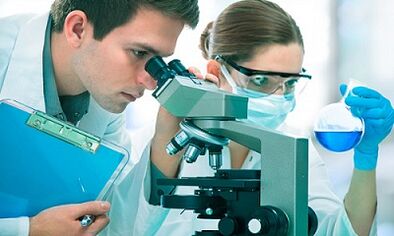
According to the WHO, more than 4 billion people on Earth suffer from parasites. Such large infections are explained by underestimating problems, inadequate population education, ineffective diagnosis and treatment of patients.
All parasites that can cause disease in humans can be divided into three major groups:
- Protozoa or Protozoa. There are several varieties among them, but only a few are spread around the world - lamblia, toxoplasma, Trichomonas.
- Worms or helminths. In the CIS countries there are ringworms, cream worms, toxokara, trichinella, pig and cow tape worms, echinococcus, cat worms and others.
- Ectoparasites (parasites on the outside) - fleas with head lice, fleas.
Infection on the human body with parasites from the last group is relatively easy to observe, but protozoa and worms are often a "surprise" for the "owner".
Why are parasites dangerous?
A large number of parasites live long and actively multiply in the human body, so the disease caused by it undergoes chronic and recurrent travel. In this case, the affected organ ceases to function fully, immunity decreases, the patient becomes more susceptible to infection.
As a result, the body of a person infected with parasites is depleted, weak, poisoned by parasitic poisons, and allergies. This process, of course, does not develop as fast as lightning, but years of ignorance about the presence of pests in the body and, therefore, the absence of treatment cause serious health problems.
How can you get infected?
Knowing the main ways to get parasites is an opportunity to protect yourself and stay healthy. If we focus on pathogens that are common in CIS countries, then the list of possible transmission of these parasites in humans is as follows:
- Through dirty hands.
- Through dirty water (including when swimming in it).
- Through unwashed vegetables and fruits.
- Through raw or inadequate cooked meat and fish.
- Contact with infected animals.
- Sexual intercourse (this is how trichomoniasis is spread).
How to suspect the presence of parasites in a person?
Each parasite is characterized by its own localization in the human body, and a special clinic on the defeat of one or another organ. However, there are some distinguishing signs that are common in all helminthiasis and some diseases caused by protozoa.
Poisoning
Its appearance is associated with the important activity of parasites in a person, the product he secretes is what poisons the patient's body. This is indicated by headache, weakness, nausea, decreased appetite, irritability.
Allergies
Often it is a skin rash that appears and disappears and does not respond well to dermatological treatment. This can manifest itself as diathesis in infants. The origin of the rash is also explained by the effects of parasitic toxins on the body. If a person is allergic, infection with worms can lead to more severe manifestations - swelling of the mucous membranes, attacks of bronchospasm, and so on.
Weight
This symptom is especially noticeable in children who seem to eat well, but do not gain weight, lose weight and at the same time look completely dizzy. The reason for weight loss lies in the competition for nutrients in the body of patients with worms.
Periodic hyperthermia
Moreover, the temperature does not rise much - to 37. 5. This happens on the background of the absence of obvious signs of disease.
Intestinal Disorders
These are bloating, and constipation, and diarrhea, and trembling, and pain in the abdomen. Often, these symptoms are explained by the presence of dysbiosis and are not successfully cured with antibiotics and bacterial medications.
Anemia
Parasites in a person eat them, therefore, nutrients, micro and macro elements, as well as vitamins, which are often eaten by patients, are not enough to meet the needs of the body itself. The first sign of such deficiency is iron deficiency in anemia, which is indicated by pale skin and mucous membranes, dizziness.
Variations in food choices, cravings for sweets
This phenomenon can also be explained by the lack of certain nutrients in the patient's body.
The appearance of these symptoms, moreover at once, should warn and force you to see a doctor.
Diagnostic and protective methods
It should be noted immediately that alternative methods for detecting parasites in the human body (e. g. , the advertised Voll method) should not be considered a reliable source of information. Therefore, you can only rely on microscopic examination of feces, and some, and specific blood tests for the presence of antibodies against worms and individual protozoa. The latter can be done in a private laboratory.
To avoid becoming a parasitic victim, one must follow a simple rule:
- Always and everywhere wash your hands with soap and water.
- There are only vegetables, fruits and ingredients that are thoroughly washed, or better yet but roasted with boiling water.
- Do not drink raw water.
- Do not swim in muddy waters.
- It is obligatory to do a full heat treatment on meat and fish products.
- Wash children's toys regularly, and items that are outside, for example, in the sandbox, must be disinfected.
- Check pets every year for parasites.
Parasitic solution
Doctors recommend worm prophylaxis 2 times a year with special preparations. However, it is impossible to give medicine arbitrarily to oneself, and especially to children, such medicine, because everything is poisonous not just for worms. Therefore, you should see a doctor about the possible use of this drug and its dosage.
If the presence of parasites in the human body is confirmed, it is advisable to find a good parasitologist who will prescribe an effective treatment regimen, as taking one medication is usually not enough.
























